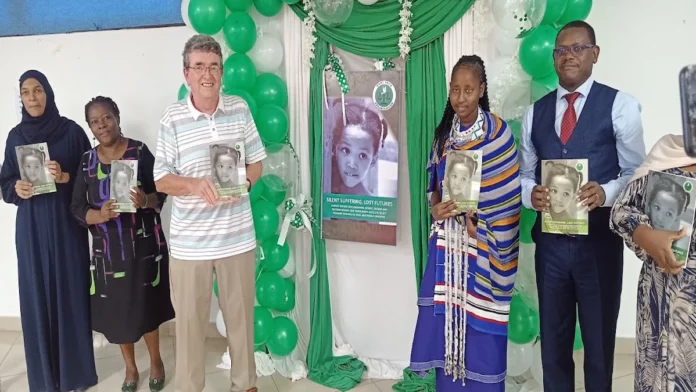In the arid landscapes of Ganze sub-county, Kilifi, and Kinango sub-county, Kwale, primary schools grapple with a significant challenge – low pupil enrolment. ‘Silent Suffering: Lost Futures,’ a report recently launched by Haki Yetu Organization, illuminates the complex nexus of factors that exacerbate this crisis; poverty, drought, hunger, and gender-based violence form its critical elements.
This report lays bare a disheartening reality: in Kilifi, poverty—an omnipresent force compelling children to prematurely end their educational journeys—pushes an alarming 55% of pupils out before they even advance past pre-primary level. Simultaneously, gender-based violence manifests as a sinister companion; it weaves itself into the fabric of low enrolment rates and propels numerous cases of high dropout.
The Challenges Endured: Triza Gacheru, an access to justice officer, addresses the root causes and highlights poor infrastructure; she underscores the absence of feeding programs and pervasive poverty. She points out that some schools lack basic amenities such as drinking water—a situation that forces children into days of enduring thirst. Furthermore, she draws attention to another issue: pupils undertaking arduous journeys—up to 40km—in order just to attend school only face hunger and thirst all day long.
Enrolment Impact: Over the last five years, an average of 166 pupils epitomize the struggle at Muungano Primary School in Bamba, Ganze sub-county. Similarly, despite a seemingly better enrolment at Mirihini Primary; myriad challenges faced by their parents or guardians cause nearly half its students to be absent. These schools do not witness the anticipated increase in child population as per the Kilifi County Integrated Development Plan manifesting themselves.
Gender Dynamics: The interaction of gender within a specific social context and the resulting power dynamics can be explored through an analysis of various factors: cultural norms; economic systems; political structures—all of which shape these dynamics.
The report intriguingly notes a trend: girls’ enrolment surpasses boys’, and it attributes this phenomenon—in part—to boys dropping out in order to pursue menial jobs. Such a shift could potentially signal progress; not only does it defy the prevailing challenges, but also serves as an encouraging indicator for campaigns promoting girl child education.
Gender-Based Violence and Legal Hurdles: Unraveling the legal hurdles that exacerbate the situation, this report identifies the requirement for birth certificates during enrollment as a significant stumbling block; numerous children lack this essential document. Furthermore, parents—primarily men—who migrate for work often choose to abandon their families: an action that results in irresponsible parenting and subsequently leads to school dropout. Defiled minors, suffering from parental neglect, experience coercion into early marriages; gender-based violence reveals itself as a pivotal factor.
Challenges in Attaining Justice: The crisis intensifies as justice becomes increasingly difficult to access: specifically, cases of gender-based violence—defilement in particular—grapple with the legal system. At present, Bamba Police Station maintains records for 126 instances of defilement; disturbingly, this includes a staggering number—24 perpetrators remain at large. The daunting challenge of elusiveness in justice amplifies due to the substantial 80km distance existing between Kilifi law courts and the police station.
The Parallel Struggle of Kwale: Over 600 gender-based violence cases, mostly involving minors, await justice in Kwale; the report mirrors this plight. The situation intensifies due to a vast jurisdiction and limited judicial resources: victims and witnesses must travel long distances to attend court sessions—an exacerbating factor.
